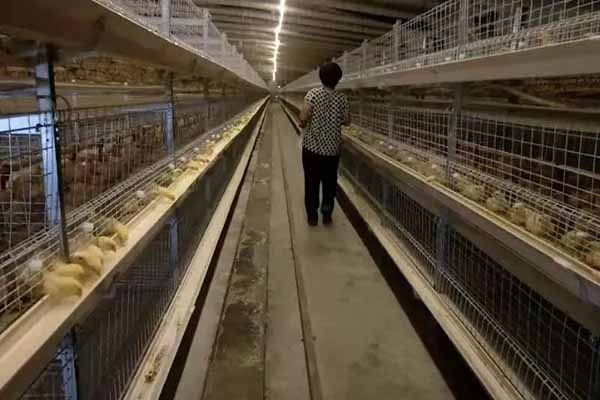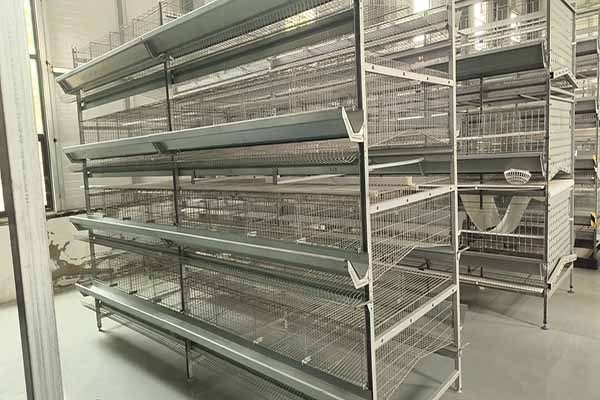Strategies to Improve Breeding Efficiency in Uganda Chicken Farms
Time : 2025-04-23
Chicken farming has become an essential part of the agricultural sector in Uganda, providing a significant source of protein and income for many families. However, to stay competitive and maximize profits, it’s crucial for chicken farmers to improve breeding efficiency. In this article, we’ll explore some practical strategies that can help you boost the productivity of your Uganda chicken farm.

1. Selecting the Right Breed
The first step to improving breeding efficiency is choosing the right breed of chickens. Different breeds have varying growth rates, egg-laying capabilities, and resistance to diseases. For example, the White Leghorn is a popular breed for egg production due to its high laying rate, while the Brahman is known for its disease resistance and meat quality. Research and select a breed that aligns with your farm’s goals and local market demands.
2. Proper Nutrition
Nutrition plays a vital role in the health and productivity of chickens. A balanced diet e nsures that the birds receive all the necessary nutrients for optimal growth and egg production. Consider the following tips:
nsures that the birds receive all the necessary nutrients for optimal growth and egg production. Consider the following tips:
- Quality Feed: Use high-quality feed that is rich in protein, vitamins, and minerals. Avoid low-quality feed as it can lead to malnutrition and poor performance.
- Age-Specific Rations: Provide different rations based on the age and stage of growth of the chickens. For example, younger birds require more protein to support their growth, while adult birds need a balanced diet to maintain their productivity.
- Free-Range Feeding: If possible, allow your chickens to forage for food. This can provide them with additional nutrients and help keep them healthy.
3. Optimal Housing Conditions
Chickens need a comfortable environment to thrive. Here are some key considerations for housing:
- Adequate Space: Ensure that each chicken has enough space to move around and spread its wings. Overcrowding can lead to stress, disease, and reduced productivity.
- Temperature Control: Keep the chicken coop at a comfortable temperature, ideally between 70-80°F (21-27°C). Extreme temperatures can stress the birds and impact their performance.
- Ventilation: Good air circulation is essential to prevent the build-up of ammonia and other harmful gases. Ensure that your coop has proper ventilation.
- Sanitation: Regularly clean and disinfect the coop to prevent the spread of diseases.
4. Health Management
Regular health checks and preventive measures are crucial for maintaining a healthy flock. Here are some strategies:
- Vaccinations: Administer vaccines to protect your chickens against common diseases. Consult with a veterinarian to develop a vaccination schedule tailored to your farm’s needs.
- Parasite Control: Regularly deworm your chickens to prevent internal parasites that can reduce their productivity.
- Monitoring: Keep a close eye on your flock for signs of illness, such as changes in appetite, weight loss, or respiratory issues. Early detection and treatment can prevent the spread of diseases.
5. Breeding Practices
Ef fective breeding practices can significantly impact the genetics and productivity of your flock. Consider the following tips:
fective breeding practices can significantly impact the genetics and productivity of your flock. Consider the following tips:
- Selective Breeding: Choose the best-performing birds for breeding, focusing on traits such as egg-laying ability, growth rate, and disease resistance.
- Record Keeping: Keep detailed records of your breeding program, including the performance of the parent birds and their offspring. This will help you track the progress of your breeding efforts and make informed decisions.
- Genetic Diversity: Avoid inbreeding by selecting birds from different genetic backgrounds. This can help maintain a healthy and productive flock.
6. Technology and Automation
Embracing technology can streamline your farming operations and improve breeding efficiency. Consider the following tools:
- Automated Feeders and Waterers: These devices can ensure that your chickens have access to food and water at all times, reducing the need for manual labor.
- Climate Control Systems: Automated systems can maintain the optimal temperature and humidity in your chicken coop, improving the overall health and productivity of your birds.
- Monitoring Systems: Use sensors and cameras to keep an eye on your flock, alerting you to any potential issues before they become serious.
7. Training and Continuous Learning
The success of your chicken farm depends on your knowledge and skills. Stay informed about the latest trends and best practices in chicken farming by attending workshops, seminars, and online courses. Additionally, consider hiring or training a skilled manager or worker to assist you in day-to-day operations.
By implementing these strategies, you can significantly improve breeding efficiency on your Uganda chicken farm. Remember, consistency and dedication are key to long-term success. Keep learning, adapting, and investing in your farm, and you’ll be well on your way to a profitable and sustainable chicken farming operation.











